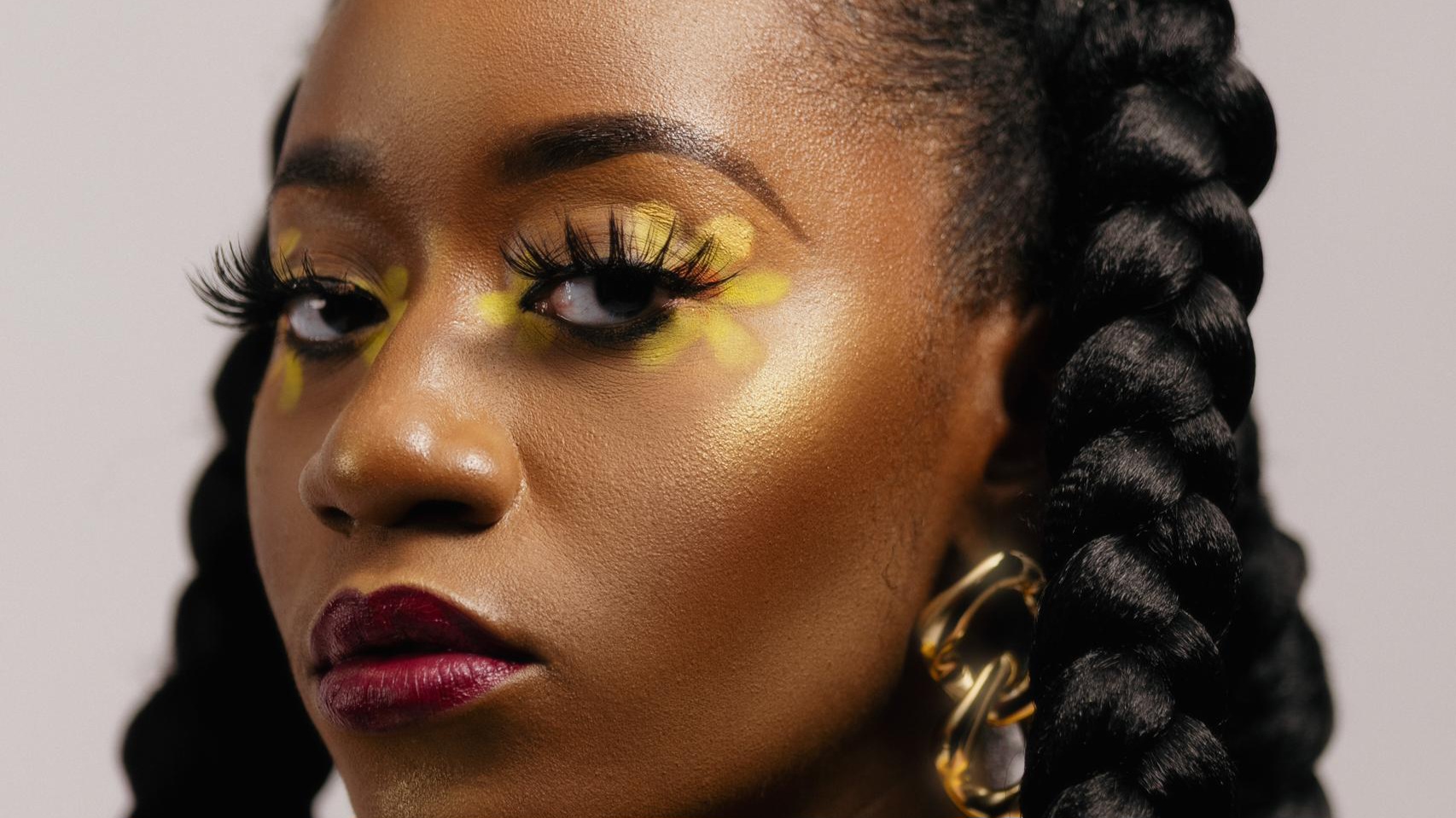 Kaliné Njoku, a.k.a Kaliné, who is celebrated for her soul-stirring melodies and piano virtuosity, is making cinematic and social media waves following the release of Breath of Life on Amazon Prime Video. Her artistic journey is characterised by notable contributions to TV series such as “The Men’s Club,” “B430,” and Kemi Adetiba’s acclaimed docu-series “King Women” as well as songs for hit movies like “Wedding Party 2,” “The Royal Hibiscus Hotel,” “Eyimofe,” “Banana Island Ghost” and more. A Berklee College of Music-trained composer and performer, Kaliné now steps into the spotlight as the composer for the highly anticipated “Breath of Life.” She also contributed two original songs to the movie. In this interview with TOBI AWODIPE, she reminisces on her journey from Berklee to concert stages and streaming platforms, what scoring a movie entails and how young people can succeed in this career path.
Kaliné Njoku, a.k.a Kaliné, who is celebrated for her soul-stirring melodies and piano virtuosity, is making cinematic and social media waves following the release of Breath of Life on Amazon Prime Video. Her artistic journey is characterised by notable contributions to TV series such as “The Men’s Club,” “B430,” and Kemi Adetiba’s acclaimed docu-series “King Women” as well as songs for hit movies like “Wedding Party 2,” “The Royal Hibiscus Hotel,” “Eyimofe,” “Banana Island Ghost” and more. A Berklee College of Music-trained composer and performer, Kaliné now steps into the spotlight as the composer for the highly anticipated “Breath of Life.” She also contributed two original songs to the movie. In this interview with TOBI AWODIPE, she reminisces on her journey from Berklee to concert stages and streaming platforms, what scoring a movie entails and how young people can succeed in this career path.
Take us through the backstory to becoming a film composer for Breath of Life?
My film scoring career started with my training at Berklee College of Music. Shortly after graduating with a BMus in Film Scoring, I released my debut album, “The Fires Of Red” of which two songs, “Stranger” and “Everybody Knows” were licensed for a TV series called “B430”. After that, I started building my resume as a songwriter and composer, scoring commercials and documentaries and licensing music for TV series and short films. In 2021, nearly seven years later, the director for “B430,” BB Sasore, approached me to score his upcoming project. At the time, I was given a script and the movie wasn’t even green-lit yet. I didn’t start working on the score till about mid-2022, when production started. I started to get scenes every few weeks so I could work on the music. Eventually, BB and I started to have bi-weekly sessions where I would play him music, and he would sign off on what worked and what should be tweaked. This is a composer’s dream, to be able to bounce ideas off a director who is very musically inclined and detail-oriented. By the time I got the final cut of the film, I pieced everything together and the final product is what you hear in the film. Indeed, it was a long process but the film is so beautiful that I didn’t mind the long hours of seeing such powerful actors tell such a beautiful story in such a moving way, over and over again.
[ad]
Many people are familiar with the terms ‘songwriting’ and ‘film composition’ but not scoring. Could you briefly explain what it means to score a movie?
Songwriting as we all know is when a writer puts lyrics to a melody. Songs form a film’s soundtrack. An example of a phenomenal soundtrack is “Waiting To Exhale” written and produced by Kenny ‘Babyface’ Edmonds. Songs give the movie an extra lyrical component, beyond the dialogue, to help drive the story along. A great film score on the other hand, is the background instrumentation that supports the storyline all the way through the film.
It enhances what you see on screen, it gives strong and deeper meanings to the emotions that are evoked in the story and it guides the audience on what to feel beyond what they see in the actors’ facial expressions and what they hear in the dialogue. A clever score can even trick an audience into thinking that a particular scene is more intense or more comedic than what the narrative is informing, in order to drive the true message home.
What influences or inspires your approach to scoring, particularly with the instrumentation?
For me, the initial inspiration stems from the visual elements, the story, characters, genre, time period, settings, language, and more. What unfolds on screen dictates the overall score, which then guides me as the composer, into crafting themes for characters, prominent moods, as well as choose instruments that align with the movie’s essence. The message of the film serves as the compass, driving the composer to build ideas that resonate with the narrative. While creative licence allows for flexibility, my training and experience have provided a rich toolkit to enhance the musical storytelling process.
Apart from scoring the entire film, what was the creative process like, making two original songs for this production to complement the narrative of the movie?
Songwriting has always been my anchor, a process that will always captivate me. When I was younger, my parents exposed me to Disney and James Bond theme songs which really fascinated me, making the opportunity to write songs for movies now an incredible experience. In “Breath Of Life,” the two songs I wrote serve distinct purposes. “Ije Love,” a duet with my talented friend Chale, enhances a crucial emotional moment between the main characters, elevating the love story’s power. The second song, “Lose To Gain” is the movie’s theme song. I wrote this song 12 hours before the deadline after struggling for two weeks. Despite the pressure I put myself under, the team loved it, and here we are. Writing a theme song for a movie is particularly challenging, condensing the film’s essence into 2-3 minutes. It involves finding an all-encompassing thread running through the story, creating lyrics that carry that message, hopefully making the lyrics rhyme or have some rhyming elements, and then composing a powerful, memorable chorus over a robust instrumental. Think of well-known theme songs like “Happy” by Pharrell Williams, “Skyfall” by Adele, “Lift Me Up” by Tems (for Rihanna), they all encompass these elements, bringing you back to the movie’s essence. I sincerely hope everyone enjoys “Lose To Gain”; it’s one of my favorite creations to date. It will be out this week on all streaming platforms. I also played the role of music supervisor for “Breath Of Life,” which means I curated the soundtrack, choosing songs from various artists (Bez, Beekay, Dinachi Onuzo, 121 Selah and many more) to carry the story and support the narrative. Interacting with other talents and licensing their songs added another layer to this fascinating experience. My heartfelt thanks to all the artists who trusted me and contributed their music to this project.
[ad]
What moments or scenes challenged you to push your creative boundaries?
Scoring emotional and sentimental scenes has been my forte, but delving into intense action and building tension for “Breath Of Life” was initially a challenge. The film’s gripping scenes demanded a unique musical atmosphere, shaping how the audience perceives the narrative. Surprisingly, I found love for composing music that evokes “tension” and “fear.” Immersing myself in the characters’ minds during moments of fear proved to be a very thrilling experience. One significant challenge involved harmonising emotions within the music to lead the audience in a different direction from what was on screen. An example is a scene where the main character was contemplating suicide, juxtaposed with a humorous voiceover. Here, the composer wields the power to either intensify the drama or infuse comedy.
Striking a balance between the intense and the comedic, leaning towards a blend of dark humor, was a delicate task. In the end, the director really embraced my approach and it even changed how he saw the scene. It added an extra layer to the character and to the story. I’m so happy that particular scene turned out well.
Can you share any memorable moments from your journey while working on the film?
My most memorable moments have to be working with my director, BB Sasore, so closely. What was great was how aligned we were in our thoughts and concerns regarding the music’s resonance with the narrative, amplifying the overall impact and making everything that much stronger. Also, the most rewarding thing for a composer is when the director, producers, editors and so on, trust you completely with your choices. Sure, we had some differing ideas, but most of the time, BB let me run with my instincts, giving me the green light to do what I felt right for the story.
What message or feelings do you hope audiences take away from the music in Breath of Life?
I distinctly remember a valuable lesson from my time at Berklee, if the audience experiences the intended emotions without explicitly recalling the music, it signifies success as a composer. The role involves providing steadfast support to the story, elevating the narrative, and intensifying emotional resonance. The objective isn’t to overshadow the actors, their lines, or the film’s message. So, the real question is, what do I want the audience to take away from this film? I’d love everyone to be genuinely moved by how time and love can create deep and beautiful bonds between unexpected characters in a story. If my music helps audiences feel this as deeply as possible, I’ve done my job.
As a creative person, how do you recharge or unwind after a long day or after completing a project, especially as we wrap up the year?
After a project as time-consuming as this, it’s time to give back to my family. I’ll be dedicating a lot of time to them and simply relishing in my favourite season of the year, Christmas.

What advice would you give to anyone seeking to venture into a career path similar to yours?
A colleague once doubted I could succeed in both film scoring and a career as a singer-songwriter. Interestingly, in this one movie, I’ve managed to do just that. By finding a way to harmonise both paths, it is becoming increasingly manageable to strike a balance. The takeaway here for anyone reading and for me, too, is this: don’t allow others’ limiting beliefs to influence the pursuit of your dreams or your life choices. Your story is uniquely yours to write.
Do you have any new projects coming up as a composer or new music for your fans? What can you tell us about them, if any?
Yes, I’ve got two film projects coming up, which will keep me very busy for the first half of next year. They are both feature films, and I’m very excited about them – great stories, top-notch actors. I’ve also got an album coming out towards the end of next year. That’s in the works already and, honestly, it has been a long time coming.
This album is from the heart, very emotional and really dives into the stories of my life, things I’ve been through over the last few years, waters I’ve had to navigate as a wife, mother and female musician in a male-dominated industry. It’s a very personal project and I’m looking forward to sharing it with the world.
[ad]


